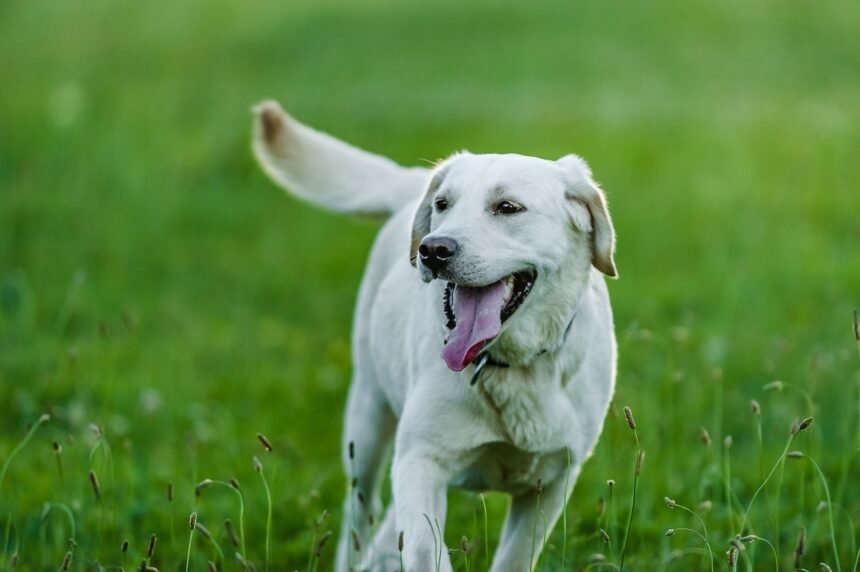Labrador Retrievers are beloved dogs known for their friendly nature, intelligence, and suitability as family pets. If you’re fortunate enough to have a Labrador Retriever, it’s essential to understand their specific care needs to ensure they live a healthy and happy life. This article explores essential Labrador Retriever care tips that every owner should know.
Nutrition and Feeding
Proper nutrition is crucial for the overall health and well-being of your Labrador Retriever. As a breed known for its hearty appetite, providing them with a balanced diet is essential. Choose high-quality dog food formulated for their specific life stage (puppy, adult, or senior) and consider their activity level and any specific dietary requirements.
Feeding schedules can vary, but generally, it’s recommended to feed adult Labradors twice a day. Puppies require more frequent meals. Avoid overfeeding, as Labradors are prone to obesity. Measure their food portions and monitor their weight regularly. Treats should be given sparingly and as part of their daily calorie intake.
Exercise and Physical Activity
Labrador Retrievers are energetic dogs with high exercise requirements. Regular exercise helps them maintain a healthy weight, keeps them mentally stimulated, and prevents boredom. Aim for at least an hour of exercise daily, including walks, runs, swimming, or playtime in a secure and spacious area.
In addition to physical exercise, Labradors thrive on mental stimulation. Engage them in activities like puzzle toys, obedience training, or agility courses. This helps keep their minds sharp and prevents destructive behaviors caused by boredom.
Grooming and Coat Care
Labrador Retrievers have a double coat that sheds moderately throughout the year and heavily during shedding seasons. Regular grooming is necessary to keep their coat healthy and minimize shedding. Brush their coat at least once a week using a slicker brush or grooming mitt to remove loose hair and prevent mats.
During shedding seasons, daily brushing can help manage the excess hair. Please pay attention to their undercoat, as it tends to tangle easily. Additionally, trim their nails regularly, clean their ears to prevent infections, and maintain proper dental hygiene by brushing their teeth or using dental treats.
Training and Socialization
Early socialization and obedience training are vital for Labrador Retrievers. As intelligent dogs, they respond well to positive reinforcement training methods. Start training them as puppies, focusing on basic commands like sit, stay, and recall. Gradually introduce more advanced training and consider enrolling them in obedience classes to strengthen the bond between you and your Labrador.
Socialization is equally important in preventing behavioral issues. Expose your Labrador Retriever to various environments, people, and other animals from a young age. This helps them become well-adjusted, confident, and friendly adult dogs.
Health and Veterinary Care
Like all dogs, Labrador Retrievers can be prone to specific health issues. Some common conditions include hip and elbow dysplasia, obesity, and specific eye problems. Regular veterinary check-ups are crucial to detect and prevent any potential health problems.
Consult your veterinarian to establish a vaccination schedule and preventive measures against parasites like fleas, ticks, and heartworms. Please keep track of your Labrador’s weight and body condition to ensure they maintain a healthy physique. Remember, a healthy diet, regular exercise, and appropriate grooming practices contribute to their overall health and well-being.
Safety and Environmental Considerations
Labrador Retrievers are curious and adventurous dogs, which means they may expose themselves to potential hazards. Dog-proof your home and yard by removing toxic plants, securing electrical cords, and storing chemicals or medications out of their reach.
When traveling or engaging in outdoor activities, ensure your Labrador’s safety using a secure leash, ID tags with up-to-date contact information, and a properly fitted collar or harness. If your Labrador enjoys swimming, always supervise them near water bodies and consider using a life jacket for added safety.
Emotional Well-being and Bonding
Labrador Retrievers thrive on human companionship and need plenty of social interaction. Spend quality time with your Labrador, providing affection, playtime, and positive reinforcement. This helps build a strong bond and prevents separation anxiety.
Recognize signs of stress or anxiety, such as excessive barking, destructive behavior, or withdrawal. Provide a safe and comfortable space for your Labrador to retreat to, and consider interactive toys or puzzle feeders to keep them mentally stimulated when you’re not around.
Special Considerations for Labrador Retrievers
Labrador Retrievers have some unique traits and characteristics that require special attention. They are known for their love of water, so if you have a pool or live near a body of water, ensure they are always supervised to prevent accidents. Invest in a secure fence or gate to prevent them from wandering off, as their friendly nature might lead them to approach strangers or other animals. Labradors also have a natural tendency to chew or retrieve objects. Please provide them with appropriate chew toys and ensure they have access to safe items to avoid destructive chewing.
In conclusion, Labrador Retrievers make wonderful companions but require dedicated care and attention. Following these essential care tips can provide them with the best possible quality of life. Remember to prioritize their nutrition, exercise, grooming, training, and veterinary care needs. With proper care, your Labrador Retriever will be a happy and healthy family member for years to come.







